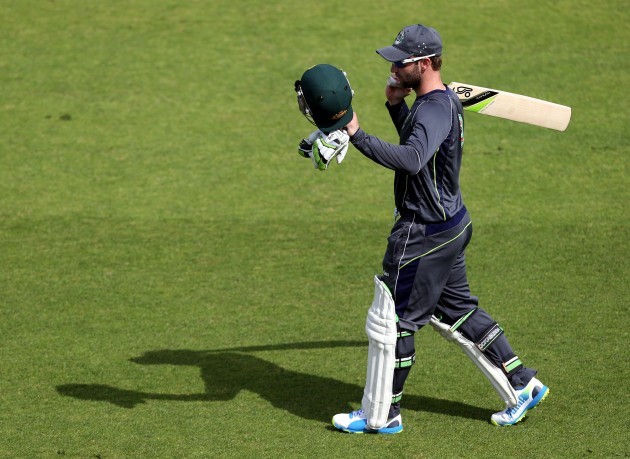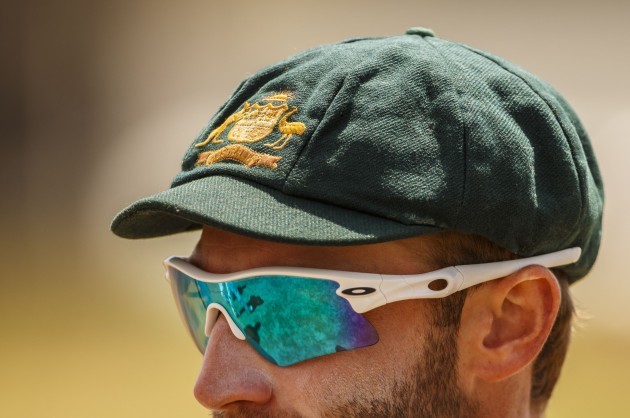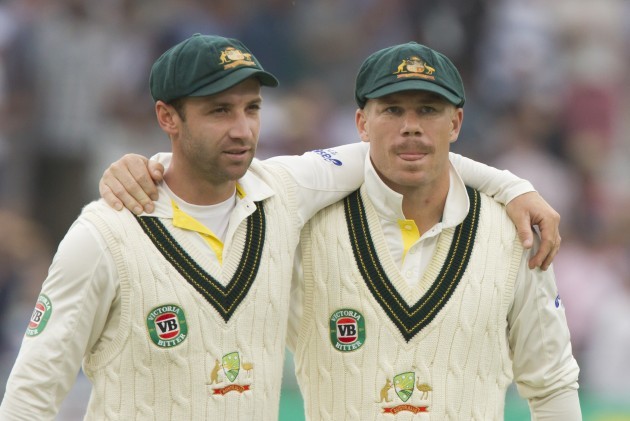WHERE DOES ONE even start?
No words seem right at such a moment, no words can make such an agonising tragedy any more digestible. The sudden passing of Phillip Hughes has no explanation, the grief is boundless, the shock overbearing.
These past 48 hours, the cricketing fraternity rallied to support Hughes, praying for his speedy recovery after being struck by a bouncer during a domestic Sheffield Shield game on Tuesday.
For all the severity of the situation – the sense of foreboding – it was inconceivable to think time would run out on Hughes’ innings just days before his 26th birthday. Tragically, he never regained consciousness. All else has paled into insignificance. It’s truly assailing.
For what meaning do runs and wickets have in such circumstances? The current round of domestic fixtures in Australia have been abandoned. The Test match between Pakistan and New Zealand has been suspended mid match and India’s tour game in Adelaide has been cancelled. Grief now, sport later.
Phil Hughes had been long regarded as another great Australian batsman in the making. He was a precocious talent from which big things were expected and many believe it was only a matter of time before he cemented his berth at the top of the order and became the prolific run scorer his aptitude merited. He had time on his side.
Inconceivably and inconsolably, he will never got that opportunity.
The grief has been universal. Players and fans from around the world have expressed their shock, sadness and regret. Team-mates trickled in and out of the Sydney hospital, gathering by his bedside to pray for a miracle. Alas, it did not arrive. Now, they are united in their sorrow and admiration for ‘Hughesy’.
At 25, Hughes had the best days of a burgeoning career ahead of him. He was in line for a recall for next week’s Test against India. He was set to replace Michael Clarke, the injured captain, in the side. Instead, a freak accident left Clarke – a close friend – with the duty to deliver a family statement during a press conference. It shouldn’t have been this way. That alone makes the past few days so shattering.
It must be stressed that the injury Hughes suffered when hit by a short-pitched delivery was extremely rare. A blow to the head can, and has, happened to any cricketer on any given day.
The ball delivered by Sean Abbott was a regulation one. It was just like any delivery Hughes had faced, nothing too slow, nothing too fast. But, as he swivelled to hook the bouncer, his timing was off, he arrived into the shot a fraction too early, perhaps miscalculating the speed at which it got onto him and that fraction of a second proved fatal. He was 63 not out.
It is a sobering reminder of the perils of sport. It’s an ugly reminder of how sport can be as high-risk as it is compelling. Cricket is not fundamentally dangerous but Hughes’ death will change the dynamic of the game. It will change many people’s perspectives.
Advancements in protection, particularly the helmet, have helped reduce the risk of injury significantly and while countless players have sustained blows to the head, no incidents have resulted in such tragic circumstances. This year, Stuart Broad was struck in the grill by a bouncer but apart from being understandably shaken, was left with a broken nose. Only this month, Pakistan batsman Ahmed Shahzad fractured a cheekbone when he was hit by a short-ball.
Helmets have engendered an element of complacency. The added protection, and comfort blanket, has emboldened batsmen to hook off the front foot and take the high-risk option rather than play cautiously and avoid short-pitch deliveries.
Masuri, the manufacturer of the helmet worn by Hughes, said the batsman’s injuries were sustained in an area of the head that is difficult to protect. It has reopened the perpetual debate on player safety in a game which sees a five-and-a-half ounce ball fired down towards a batsman from 22 yards at speeds of 90 miles per hour.
Truthfully, it’s not the time for such a debate. Emotions are still raw and will be for some time but the world, as it always does, will move on.
For now, the communal feeling of numbness and disbelief that something so frivolous like a game of cricket- even one delivery – isn’t immune from life’s tragic twists of fate will endure. Phillip Joel Hughes, Cap 408, will forever remain 63 not out.
First published at 14.37



